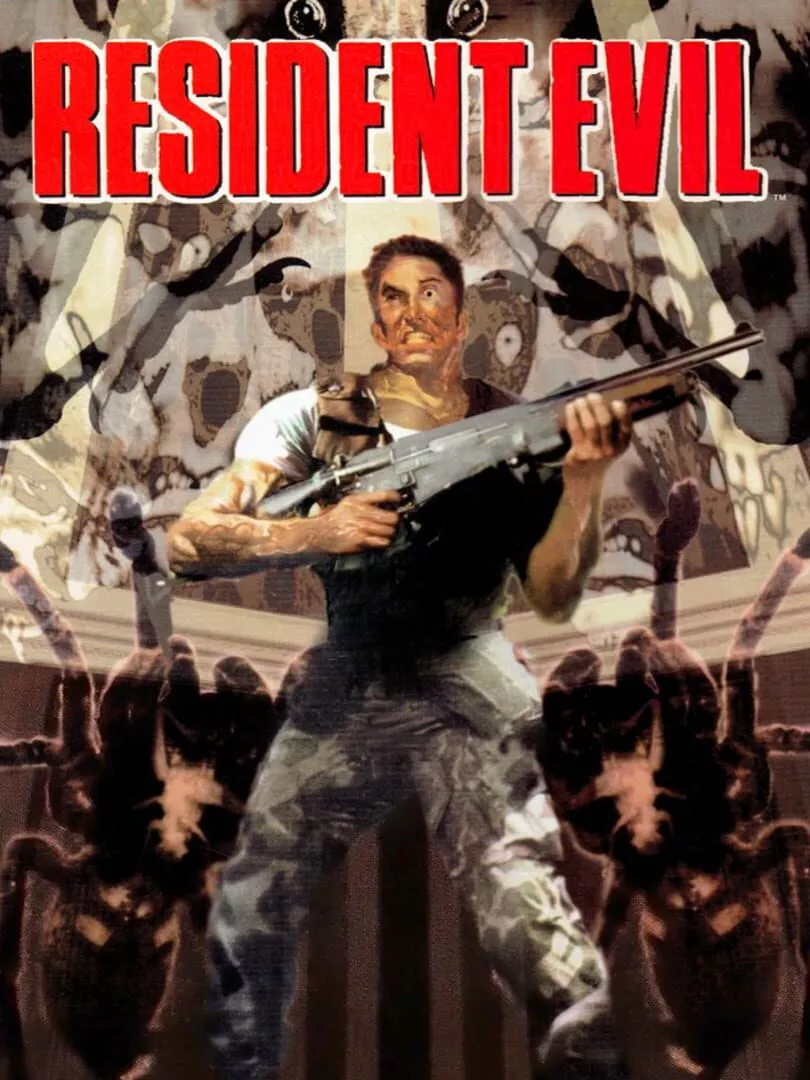
Ah, Resident Evil, the game that gave us sleepless nights and made us question our decision to go to the bathroom alone at night. This survival horror classic introduced us to a group of brave special forces agents, known as S.T.A.R.S, who found themselves trapped in a mysterious mansion infested with zombies and other gruesome mutants. As they fought to survive and uncover the truth, players were captivated by the game's intense atmosphere and innovative gameplay.
Resident Evil took a unique approach to its gameplay environment. Instead of the typical fully 3D world we had become accustomed to, the game combined polygonal 3D characters with pre-rendered 2D backgrounds. This gave the game a distinct visual style and allowed for more detailed backgrounds. However, it also meant that players had to navigate through fixed camera angles, adding an extra layer of tension as you never knew what horrors awaited just around the corner.
It's hard to believe now, but back in 1996 when Resident Evil was first released, the term "survival horror" didn't even exist. This game was one of the pioneers of the genre and helped popularize it. With limited resources, a sense of isolation, and an emphasis on atmosphere and tension, Resident Evil set the standard for what a horror game could be.
One of the aspects that made Resident Evil so terrifying was its sound design. From the eerie silence interrupted by a distant growl to the blood-curdling screams of the undead, every sound in the game was expertly crafted to keep you on the edge of your seat. And let's not forget the iconic voice acting, which, while often criticized for its cheesy delivery, added to the game's charm and became a staple of the series.
But it wasn't just the horror elements that made Resident Evil a standout game. It also featured engaging puzzle-solving gameplay and a compelling storyline full of twists and turns. As the game progressed, players uncovered the dark secrets of the mansion, revealing a conspiracy that went far beyond a simple infection. The game's mix of action, exploration, and suspense kept players hooked from start to finish.
Resident Evil was not without its faults, though. The game's notoriously clunky controls and awkward camera angles led to many frustrating moments and unintentional deaths. But even these flaws became part of the game's charm, adding an extra layer of challenge and tension. As players mastered the controls, they felt a sense of accomplishment, knowing they had overcome not only the horrors of the game but also its technical limitations.
The success of Resident Evil spawned a long-running franchise that has since expanded into movies, books, and even a theme park attraction. The game's popularity led to numerous sequels and spin-offs, each building upon the foundation set by the original. Some have been more successful than others, but they all owe their existence to the game that started it all.
Fast forward to today, and the survival horror genre is thriving, thanks in part to the groundbreaking work of Resident Evil. Games like Silent Hill, Dead Space, and The Last of Us have all taken inspiration from the iconic franchise, creating their own unique visions of horror. But no matter how many games try to replicate its success, Resident Evil will always hold a special place in the hearts of horror game enthusiasts.
So, if you're feeling brave and have a hankering for some heart-pounding, pulse-racing gameplay, why not dust off your PlayStation or fire up your PC and experience the terror of Resident Evil for yourself? Just remember to keep a few spare pairs of underwear handy—you might need them.